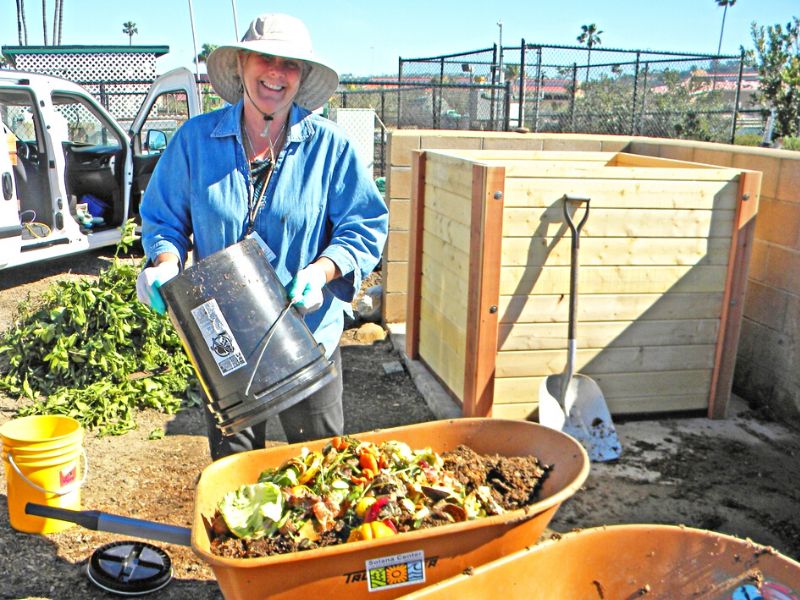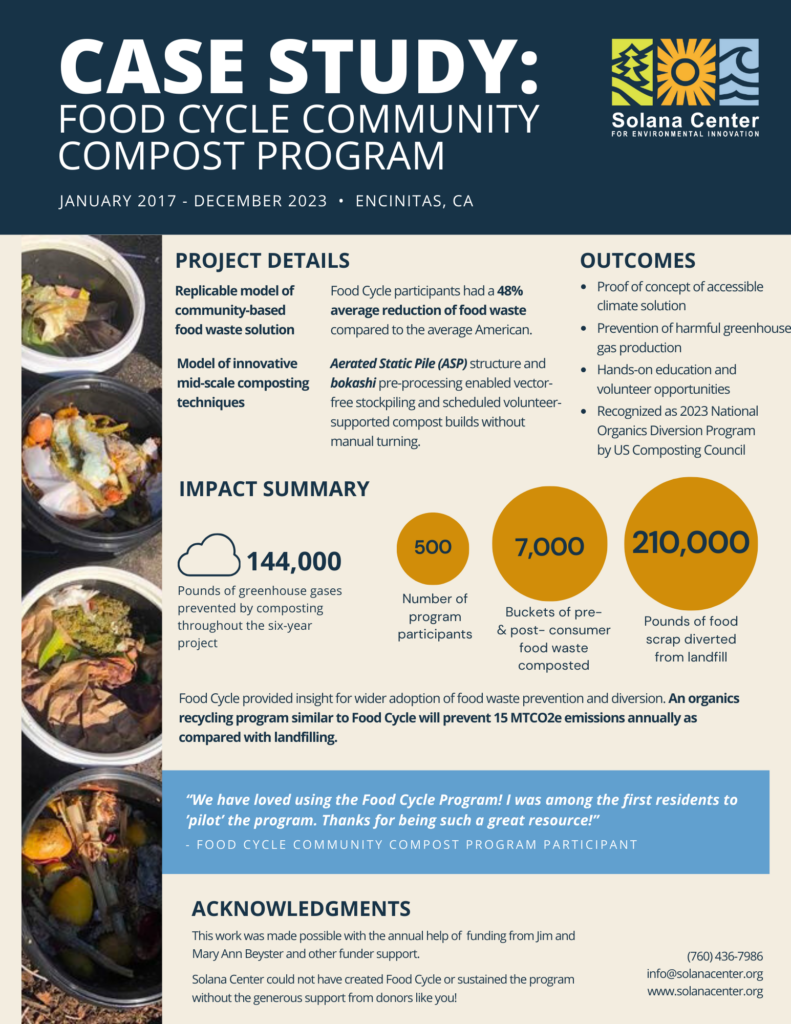Case Study: Food Cycle Community Compost Program

At the end of 2023, Solana Center made the difficult decision to end the Food Cycle Community Compost program. With the rollout of curbside green recycling bins, we had seen a steady participation decline, and continuing the program was no longer sustainable for our organization.
We are so grateful for all of the residents and businesses who participated in this program and helped demonstrate a need for community composting in our region and beyond! Read on to learn more about the impact and outcomes of this six-year pilot program.

Project Details
- Replicable model of community-based food waste solution: Food Cycle participants had a 48% average reduction of food waste compared to the average American.
- Model of mid-scale ASP composting technique: Aerated Static Pile (ASP) structure and bokashi pre-processing enabled vector-free stockpiling and scheduled volunteer-supported compost builds without manual turning.
Outcomes
- Proof of concept of accessible climate solution
- Prevention of harmful greenhouse gas production
- Hands-on education and volunteer opportunities
- Recognized as 2023 National Organics Diversion Program by US Composting Council
Impact Summary
- 144,00: Pounds of greenhouse gases prevented by composting throughout the six-year project
- 500: Number of program participants
- 7,000: Buckets of pre- & post-consumer food waste composted
- 210,00: Pounds of food scrap diverted from landfill
- Food Cycle provided insight for wider adoption of food waste prevention and diversion. An organics recycling program similar to Food Cycle will prevent 15 MTCO2e emissions annually as compared with landfilling.
“We have loved using the Food Cycle Program! I was among the first residents to ‘pilot’ the program. Thanks for being such a great resource!”
– Food Cycle Community Compost Program Participant
Acknowledgments
This work was made possible with the annual help of funding from Jim and Mary Ann Beyster and other funder support.
Solana Center could not have created Food Cycle or sustained the program without the generous support from donors like you! If you’d like to contribute to the future of innovative programs like this one we would appreciate your support!
